Water damage can be a devastating experience for renters, leading to costly repairs, lost belongings, and displacement from their homes. Understanding your renter’s insurance policy and knowing how to navigate the claims process can make a significant difference in mitigating the impact of water damage.
This guide provides comprehensive water damage insurance adjuster tips for renters, empowering them to effectively communicate with their insurance company, assess damages, and negotiate fair settlements.
Renters often face unique challenges when dealing with water damage. They may be unsure of their rights and responsibilities, and they may not have the resources to cover the costs of repairs or replacements. This guide aims to bridge this knowledge gap and provide renters with the tools they need to protect their interests and ensure a smooth claims process.
Understanding Water Damage Insurance Policies for Renters
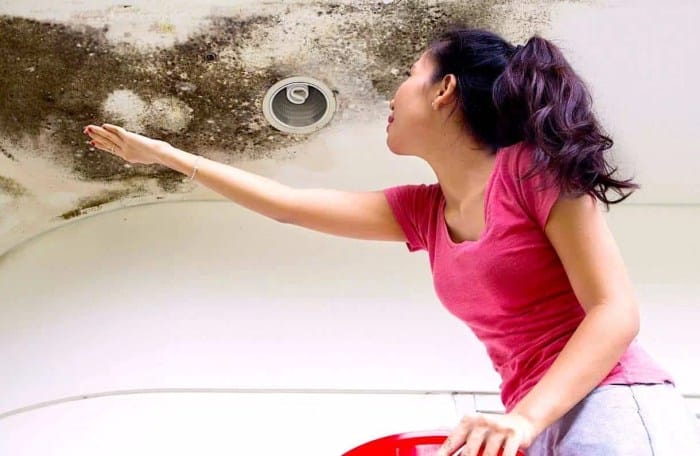
Renter’s insurance policies provide financial protection against water damage to your personal belongings. Understanding the different types of water damage covered and the terms and conditions of your policy is crucial.
There are two main types of water damage covered by renter’s insurance: sudden and accidental water damage, and gradual water damage.
Sudden and Accidental Water Damage
Sudden and accidental water damage refers to unexpected and unforeseen events that cause water damage. This includes incidents like burst pipes, overflowing sinks or toilets, or damage caused by storms or natural disasters.
Gradual Water Damage
Gradual water damage refers to water damage that occurs over time due to neglect or lack of maintenance. Examples include leaks from faulty appliances, water seepage through walls or windows, or damage caused by mold or mildew.
Importance of Reviewing Policy Terms and Conditions
It’s essential to carefully review the terms and conditions of your renter’s insurance policy to understand the specific coverage limits, exclusions, and deductibles that apply. This will help you determine the extent of your coverage and ensure you’re adequately protected against water damage.
Steps to Take After Experiencing Water Damage as a Renter
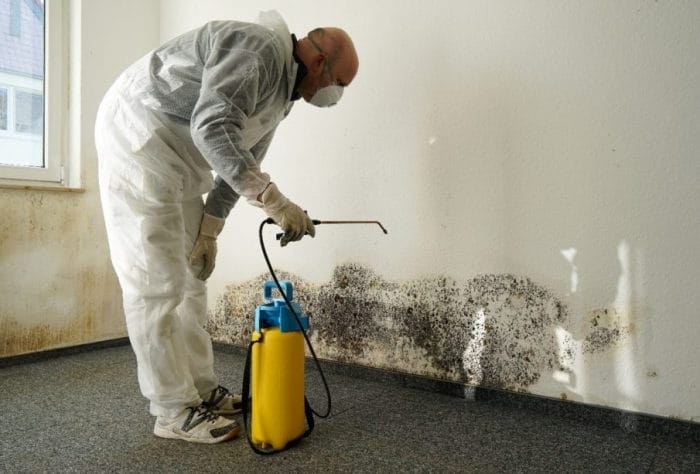
Upon discovering water damage in your rental property, it’s crucial to act promptly to mitigate further damage and ensure a timely resolution. Here’s a step-by-step guide to help you navigate the process:
Contact Your Landlord Immediately
Inform your landlord about the water damage as soon as possible. Clearly communicate the extent and location of the damage, and request their immediate attention to address the issue. Timely communication allows for prompt action to prevent further deterioration of the property and minimize the impact on your living situation.
Document the Damage Thoroughly
Take detailed photos and videos of the water damage, capturing both the affected areas and the extent of the damage. These records will serve as valuable evidence when filing an insurance claim and negotiating with your landlord or insurance company.
Mitigate Further Damage
Take reasonable steps to prevent further damage to your personal belongings and the rental property. This may involve turning off the water supply, removing wet items from the affected area, and placing towels or plastic sheeting to protect undamaged areas.
However, avoid attempting major repairs or cleaning until a professional has assessed the damage.
File an Insurance Claim
If you have renter’s insurance, contact your insurance company promptly to file a claim. Provide them with the necessary information, including photos, videos, and a detailed account of the incident. Cooperate with the insurance adjuster during the claims process to ensure a fair and timely settlement.
Work with Your Landlord on Repairs
Collaborate with your landlord to arrange for repairs to the damaged property. Keep open communication to ensure that the repairs are completed promptly and to your satisfaction. If there are disagreements or delays in the repair process, consider seeking legal advice or involving relevant authorities.
Keep Records of All Expenses
Maintain a record of all expenses incurred as a result of the water damage, including hotel stays, meals, and cleaning costs. These expenses may be reimbursable through your renter’s insurance or through negotiations with your landlord.
Assessing Water Damage and Determining Liability
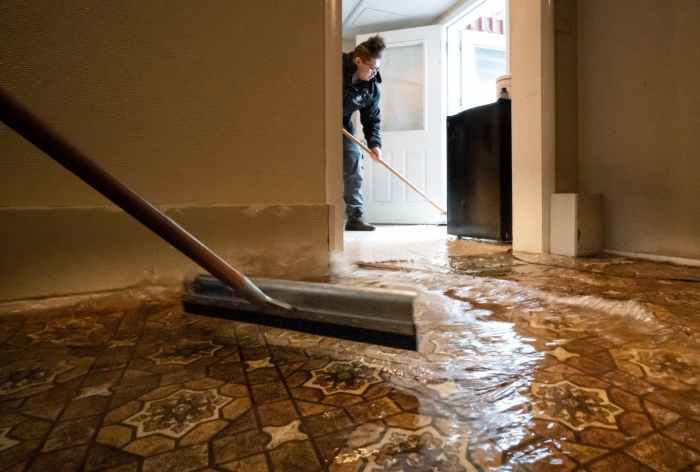
When a renter experiences water damage, it’s crucial to assess the extent of the damage and determine liability to facilitate a smooth insurance claim process and ensure appropriate repairs or replacements are made.
The water damage insurance adjuster plays a pivotal role in assessing the damage, evaluating the cause, and determining liability. The adjuster will conduct a thorough inspection of the affected areas, documenting the damage, and gathering evidence to establish the cause and extent of the damage.
Factors Considered in Determining Liability
Several factors are considered when determining liability for water damage in a rental property:
- Negligence: If the renter’s negligence caused the water damage, they may be held responsible. Examples include leaving a faucet running, overflowing a bathtub, or failing to properly maintain appliances that cause leaks.
- Force Majeure: If the water damage was caused by an event beyond the renter’s control, such as a natural disaster, burst pipes due to freezing temperatures, or a faulty water heater, the renter may not be held liable.
- Landlord’s Responsibility: In some cases, the landlord may be responsible for water damage if it was caused by a faulty plumbing system, a leaking roof, or inadequate maintenance of the property.
- Lease Agreement: The terms of the lease agreement may specify who is responsible for repairs and maintenance, and this can influence the determination of liability.
It’s important to note that liability for water damage can be complex and may vary depending on the specific circumstances. Renters should carefully review their lease agreement and promptly report any water damage to the landlord to ensure proper assessment and resolution of the issue.
Negotiating with the Insurance Company
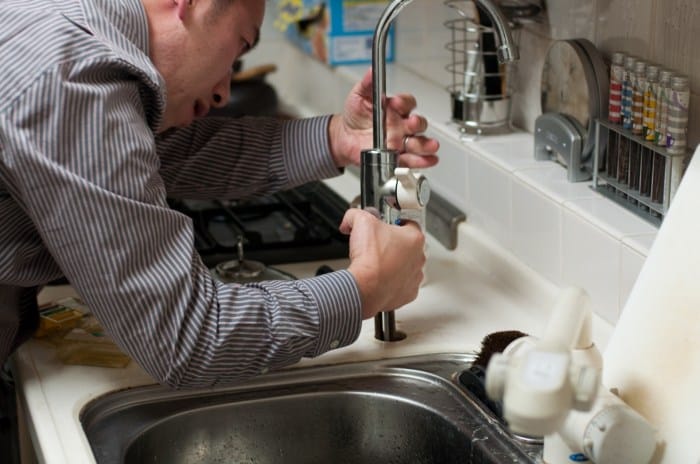
Renter’s insurance policies can be challenging to comprehend, making negotiations with insurance companies potentially complex. Here are tips to assist renters in effectively negotiating with insurance companies:
Understanding Policy Coverage Limits
Before initiating negotiations, renters must have a thorough understanding of their policy’s coverage limits. This involves being aware of the following:
Policy Limits
Know the maximum amount your insurance will cover for water damage-related expenses.
Deductible
Understand the amount you are responsible for paying before the insurance coverage takes effect.
Covered Expenses
Familiarize yourself with the specific water damage expenses covered by your policy, such as repairs, replacements, and temporary living expenses.
Documenting Water Damage and Repair Costs
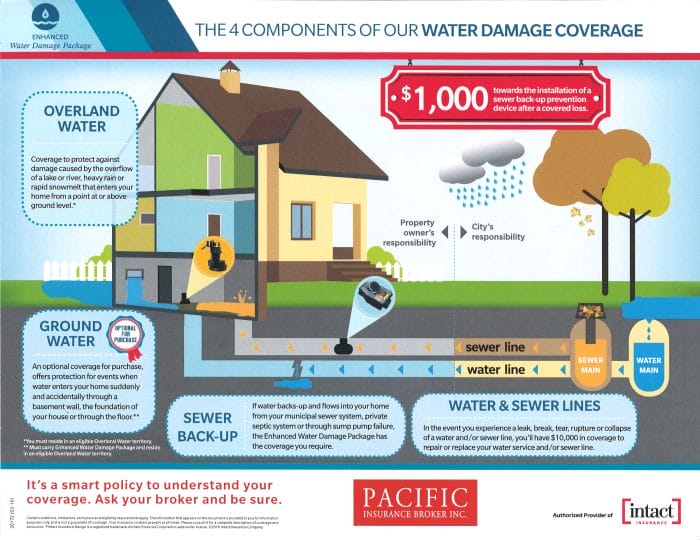
To support an insurance claim for water damage, meticulous documentation is vital. It establishes the extent of the damage, facilitates the estimation of repair costs, and aids in the negotiation process with the insurance company.
Types of Documentation Required
- Photographs: Capture detailed images of the damaged areas, both before and after cleanup. Ensure to include wide shots and close-ups, focusing on the extent of the damage.
- Videos: Record videos of the damaged areas, providing a comprehensive visual representation of the damage. Narrate the extent of the damage while recording to provide additional context.
- Written Description: Create a detailed written account of the water damage incident. Include the date and time of the incident, the source of the water damage, and a thorough description of the damaged items and areas.
- Estimates from Qualified Contractors: Obtain estimates from qualified contractors for the repairs and replacements needed. These estimates should be detailed and include a breakdown of the costs associated with labor, materials, and any necessary permits.
- Receipts and Invoices: Collect receipts and invoices for any expenses incurred due to the water damage, such as temporary housing, cleaning services, or repairs made before the insurance claim was filed.
Estimating the Cost of Repairs and Replacements
When estimating the cost of repairs and replacements, consider the following factors:
- Type of Damage: The cost of repairs will vary depending on the type of water damage. For instance, Category 1 water damage, which involves clean water, typically requires less extensive repairs compared to Category 3 water damage, which involves contaminated water.
- Extent of Damage: The more extensive the damage, the higher the repair costs. Factors like the number of rooms affected, the depth of the water, and the duration of the water exposure all contribute to the overall cost.
- Materials and Labor: The cost of materials and labor will also impact the repair costs. Certain materials, such as high-end flooring or cabinetry, may be more expensive than standard options. Additionally, the cost of labor can vary depending on the location and the availability of qualified contractors.
Significance of Obtaining Estimates from Qualified Contractors
Obtaining estimates from qualified contractors is crucial for several reasons:
- Accuracy: Qualified contractors can provide accurate estimates based on their experience and expertise. They can assess the damage and determine the necessary repairs, ensuring that the costs are reasonable and justified.
- Credibility: Estimates from qualified contractors carry more weight with insurance companies. They demonstrate that the repairs are necessary and that the costs are fair.
- Negotiation: Having detailed estimates from qualified contractors strengthens your position when negotiating with the insurance company. It provides concrete evidence to support your claim and helps ensure that you receive a fair settlement.
Preventing Water Damage in a Rental Property
Renters can take proactive steps to minimize the risk of water damage in their rental units, protecting their belongings and preventing costly repairs.
Identifying Common Causes of Water Damage
Common sources of water damage include:
- Leaking pipes or faucets
- Clogged drains
- Overflowing sinks or bathtubs
- Faulty appliances
- Roof leaks
- Natural disasters
Proactive Maintenance Tasks to Prevent Water Damage
Renters can take several proactive maintenance tasks to prevent water damage:
- Regularly inspect pipes, faucets, and drains for leaks and fix them promptly.
- Clean drains regularly to prevent clogs.
- Avoid pouring grease or food scraps down the drain.
- Place a drip pan under appliances that use water, such as washing machines and dishwashers.
- Keep gutters and downspouts clean and free of debris.
- Report any leaks or water damage to the landlord immediately.
Additional Tips for Preventing Water Damage
Renters can also take the following steps to minimize the risk of water damage:
- Be mindful of water usage and avoid wasting water.
- Keep an eye on the weather forecast and take precautions during storms.
- Install water sensors in areas prone to flooding.
- Purchase renter’s insurance to protect your belongings in case of water damage.
By following these tips, renters can help prevent water damage in their rental units, saving themselves time, money, and hassle.
Understanding Depreciation and Its Impact on Claims
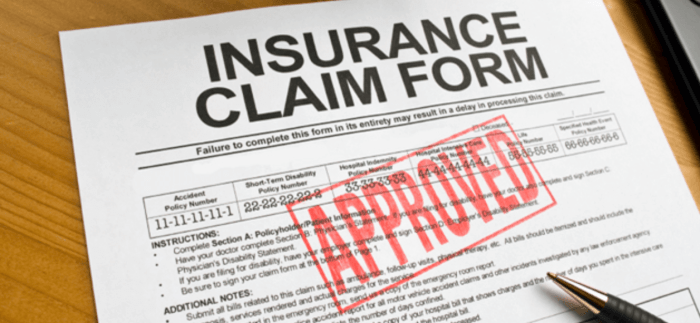
Depreciation is the gradual loss of value of an asset over time due to wear and tear, age, or obsolescence. In the context of insurance claims, depreciation affects the value of damaged items and can impact the settlement amount.
Calculating Depreciation
Insurance companies use various methods to calculate depreciation, including:
- Straight-line depreciation: This method calculates depreciation as a fixed percentage of the item’s value over its useful life.
- Accelerated depreciation: This method calculates depreciation at a higher rate in the early years of an item’s life and a lower rate in the later years.
- Diminishing balance depreciation: This method calculates depreciation as a percentage of the item’s remaining value, resulting in a decreasing depreciation amount over time.
The method used to calculate depreciation can significantly impact the settlement amount. For example, accelerated depreciation may result in a lower settlement amount in the early years of an item’s life, while straight-line depreciation may provide a more consistent settlement amount over time.
Strategies for Minimizing the Impact of Depreciation
There are several strategies renters can employ to minimize the impact of depreciation on their insurance claims:
- Maintain a detailed inventory of your belongings: Keep a record of the items you own, including their purchase dates, values, and condition. This documentation can help you substantiate your claim and negotiate a fair settlement amount.
- Consider purchasing replacement cost coverage: Replacement cost coverage provides the cost of replacing damaged items with new ones, regardless of depreciation. While this coverage may be more expensive, it can provide peace of mind and ensure you receive a fair settlement.
- Negotiate with the insurance company: If you disagree with the depreciation deduction, you can negotiate with the insurance company to reach a fair settlement amount. Provide documentation to support your claim, such as receipts, appraisals, or photos of the damaged items.
By understanding depreciation and its impact on insurance claims, renters can take steps to minimize its effect on their settlement amounts and ensure they receive fair compensation for their losses.
Dealing with Disputes and Denials of Claims
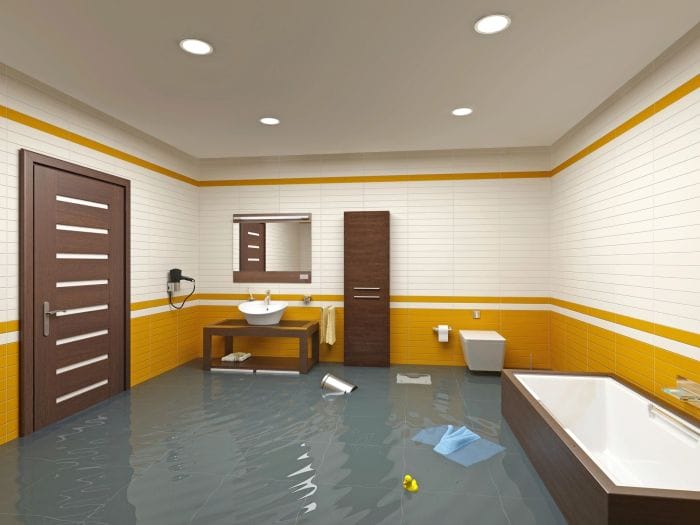
When a renter’s water damage claim is disputed or denied, it can be a stressful and frustrating experience. However, there are steps renters can take to navigate the situation and protect their rights.
If a renter’s claim is denied or undervalued, they should first contact their insurance company and request a written explanation of the denial. The renter should carefully review the explanation and identify any errors or inconsistencies. If the renter believes the denial is unjustified, they can file an appeal.
Filing an Appeal
To file an appeal, the renter should gather all relevant documentation, including the insurance policy, the claim form, the denial letter, and any other correspondence with the insurance company. The renter should also take photographs of the damage and obtain estimates for repairs.
The renter should then submit the appeal to the insurance company in writing, along with all supporting documentation.
Seeking Legal Assistance
If the insurance company denies the appeal, the renter may consider seeking legal assistance. An attorney can help the renter understand their rights and options and can represent them in court if necessary.
Creating an Emergency Plan for Water Damage
Water damage can occur unexpectedly, causing significant stress and disruption. Having an emergency plan in place can help you respond quickly and effectively to minimize damage and ensure the safety of your belongings.Creating an emergency plan involves identifying potential water sources, establishing a communication system, and assembling an emergency kit.
It’s crucial to review and update your plan regularly to ensure it remains effective.
Identifying Potential Water Sources
[detailed content here]
- Inspect your rental property for potential water sources, such as leaky pipes, faulty appliances, and clogged drains.
- Be aware of external factors that may cause water damage, such as heavy rains, flooding, or burst pipes in neighboring units.
Establishing a Communication System
[detailed content here]
- Create a list of emergency contacts, including your landlord, property manager, insurance company, and a trusted neighbor.
- Ensure you have multiple ways to communicate, such as phone numbers, email addresses, and social media accounts.
- Develop a plan for communicating with your landlord or property manager about water damage issues.
Assembling an Emergency Kit
[detailed content here]
- Gather essential items such as towels, buckets, a wet/dry vacuum cleaner, and a flashlight.
- Include personal protective equipment like gloves, masks, and goggles to protect yourself from contaminated water.
- Store your emergency kit in an easily accessible location and ensure everyone in your household knows where it is.
Resources and Support for Renters Dealing with Water Damage
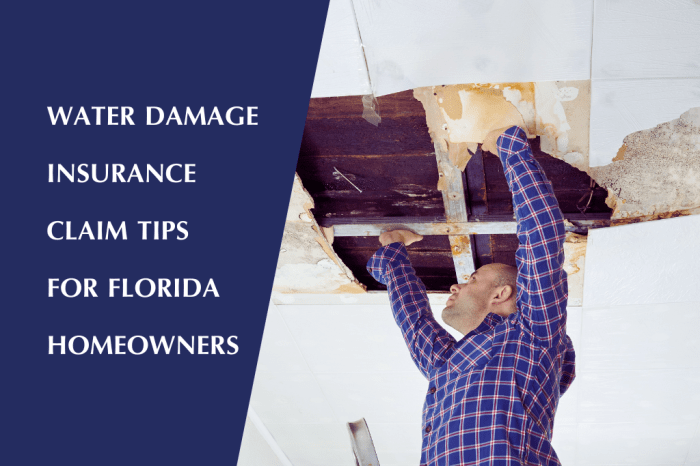
Water damage can be a devastating and costly experience for renters. Fortunately, various resources and organizations are available to provide support and assistance during this challenging time.
Government Agencies
Government agencies at the local, state, and federal levels offer a range of programs and services to help renters affected by water damage. These agencies can provide financial assistance, legal advice, and information on how to find safe and affordable housing.
Legal Aid Organizations
Legal aid organizations provide free or low-cost legal services to low-income individuals and families. These organizations can assist renters in understanding their rights and responsibilities, negotiating with landlords, and pursuing legal action if necessary.
Tenant Rights Groups
Tenant rights groups advocate for the rights of renters and provide information and support to renters facing various issues, including water damage. These groups can help renters understand their rights, negotiate with landlords, and find resources to assist them.
Finding Reputable Contractors
When dealing with water damage, it’s essential to find reputable contractors to perform the necessary repairs. Here are some tips for finding reputable contractors:
- Get recommendations from friends, family, or neighbors.
- Check online reviews and ratings.
- Ask for references from previous clients.
- Make sure the contractor is licensed and insured.
- Get a written estimate before hiring the contractor.
Avoiding Scams
Unfortunately, there are many scams targeting renters who have experienced water damage. Here are some tips to avoid scams:
- Be wary of contractors who demand large upfront payments.
- Never sign a contract without reading it carefully.
- Be cautious of contractors who offer to do the work without a permit.
- If you suspect a scam, report it to the local authorities.
Closure
By following the tips and strategies Artikeld in this guide, renters can navigate the water damage insurance claims process with confidence. They can effectively communicate with their insurance company, thoroughly document the damage, and negotiate fair settlements. By understanding their rights and responsibilities, renters can protect their belongings, minimize financial losses, and ensure a swift and hassle-free claims experience.
Frequently Asked Questions
What should renters do immediately after discovering water damage in their rental property?
Upon discovering water damage, renters should promptly notify their landlord and contact their insurance company. They should also take steps to mitigate further damage, such as turning off the water supply and securing the affected area.
How can renters document water damage for their insurance claim?
Renters should thoroughly document the water damage by taking photos and videos of the affected areas. They should also keep receipts for any expenses incurred due to the damage, such as temporary housing or cleaning services.
What factors does the water damage insurance adjuster consider when determining liability for the damage?
The insurance adjuster will consider several factors when determining liability, including the cause of the water damage, the age and condition of the property, and any negligence or intentional acts that may have contributed to the damage.
How can renters negotiate with their insurance company for a fair settlement?
Renters should have a clear understanding of their policy coverage limits and be prepared to negotiate with the insurance company for a fair settlement. They should provide detailed documentation of the damage and any expenses incurred, and they should be willing to compromise to reach a mutually agreeable resolution.
What resources are available to renters who have experienced water damage?
Renters who have experienced water damage can find support from various organizations, including government agencies, legal aid organizations, and tenant rights groups. These organizations can provide guidance on filing insurance claims, negotiating with landlords, and obtaining financial assistance.



